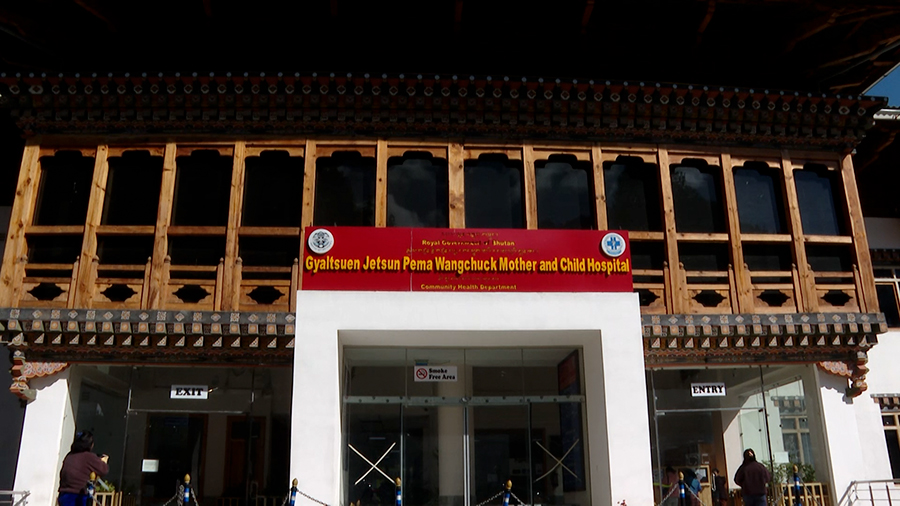
One in five women will experience mental health conditions during pregnancy or after delivery. This is according to data maintained by the World Health Organisation. Such mental health problems are defined as perinatal mental health. To address such issues, the Gyaltsuen Jetsun Pema Mother and Child Hospital and the national referral hospital are screening mothers who are under the six-week treatment after birth. Currently, nearly 150 women are undergoing treatment at the mother and child hospital for various perinatal mental health issues.
About 1300 mothers were screened for perinatal mental health issues since May last year.
The counsellors say the most common perinatal mental health problems in the country are postpartum depression and anxiety.
Moreover, they say only around four mothers come for mental health consultation voluntarily as compared to around 45 detected through screenings.
“I think this is because of a lack of awareness of perinatal mental illnesses like depression, anxiety and what their symptoms are. Secondly, it could be because of not being able to differentiate what a normal baby blue experience looks like as compared to what they are experiencing right now and lastly, it could be due to stigma associated with mental illnesses,” said Anjana Pradhan, Clinical Counsellor of Department of Psychiatrist.
Counsellors added that perinatal mental health problems vary from mild, moderate to severe cases.
Mild cases include baby blues where a mother experiences sadness, anxiety and sleep disturbances during the initial phase after birth. This may last less than a month. Therefore, counsellors say they educate the mothers on the problem and recommend them to visit the hospital again if the situation worsens.
However, severe cases include postpartum psychosis where a mother may experience hallucination and delusion. Such patients are given medication first and counselling afterwards.
Mothers who are undergoing treatment say such mental health problems are often hard to cope with.
“After giving birth, I was depressed and worried for one to two months. I got various thoughts such as how unlucky and incompetent I am and that I have to stay home with my baby. I even get suicidal thoughts. When I get such thoughts, I forget that I have two children, and a family and that I am literate. I realise the realities of my life weeks later. Then, I come to know that what I am thinking is wrong,” said a mother.
“When I had my first child, everything was new to me, so I was somewhat depressed. It was hard because everyone else was working but I was at home. However, I did not struggle much with my second child because I was much more mature and was able to cope with the struggle,” said Tshering Lhaden, a mother.
Counsellors say that mothers with unplanned pregnancies, less support from their husbands and families, and financial issues often face perinatal mental health problems.
The psychiatric department of the national referral hospital is currently sending counsellors to various communities to advocate on mental health issues.
Singye Dema
Edited by Kipchu








